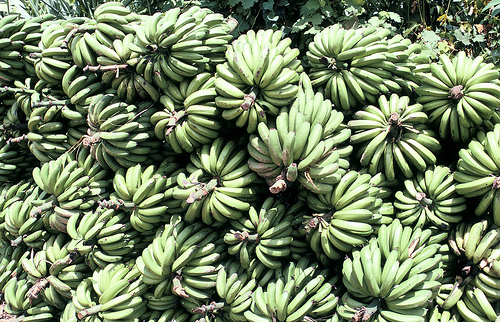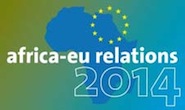Family farming is a central piece of the agenda for African transformation. Declared the United Nations (UN) Year of Family Farming and the African Union (AU) Year of Food Security, 2014 will be particularly interesting, with key challenges for family farming in terms of policy directions, international processes and efforts on the ground. Ten reasons why: 1) The UN sheds its light on family farming To achieve a pro-family farming environment tailored to local conditions, the UN aims to reposition family farmers at the center of agricultural, environmental and social policies in national agendas. The ...
+++ ECDPM Challenges blog series. Post number six +++ Declared the UN Year of Family Farming and the AU Year of Food Security, 2014 will be particularly interesting. With key challenges in terms of policy directions, international processes, and Europe-Africa relations, conflicts can certainly arise; but next year we could also see some break-through in all these three dimensions. Policy dilemmas The main challenge, in terms of policy choices, is going to be related to the agricultural model that public and private decision-makers promote through their efforts to enhance food security in Africa. Some believe ...
After decades of protocols and high-level declarations without implementation, regional integration is slowly happening in many parts of Africa, often driven by commercial moves. More recently, regional markets and especially public-private-partnerships (PPP) are becoming fashionable approaches to promote food security. Many bottlenecks remain, however, both in policy reform follow-up and asymmetric benefits for entrepreneurs along the food value-chains. RECs, their member states and interested stakeholders should pilot concrete results to show that regional integration can become more credible and effective, and contribute to food security. As part of ECDPM’s support to RECs and the Comprehensive ...
Largely overshadowed by provisional budget decisions on the European Development Fund, Development Ministers at yesterday’s Foreign Affairs Council (FAC) endorsed a long awaited and crucial EU Food and Nutrition Security Implementation Plan. The Implementation Plan (IP), entitled “Boosting food and nutrition security through EU action: implementing our commitments”, is the Commission’s tardy response to an invitation from the FAC to design an operational framework to better coordinate EU and Member States’ policies and programmes in the area of food and nutrition security. Whether the IP will actually be capable of doing so is the crucial ...
Account of the “Food Across Borders” conference in West Africa West Africa has far-reaching commitments to promote intra-regional trade. The Economic Community of West African States’ trade liberalization scheme, launched back in 1990, provides for the elimination of tariff and non-tariff barriers between the region’s 15 member states. Also the regional agricultural policy, adopted in 2005, reflects this ambition, the regionalization of agricultural and food products is at its core. Both frameworks should contribute to food sovereignty and food security in West Africa, particularly through enhanced cross-border trade between food abundant and food deficit areas. ...
Reflections from the Annual General Assembly of the Global Donor Platform for Rural Development No doubt certain countries in the world, especially those in Africa, need to gain more reliable access to food in order to fight hunger. No doubt this requires increasing production and productivity in agriculture, as well as better integration of regional agricultural markets. No doubt the role of donors in supporting such efforts is important. But is food security just about producing more food, or about eating well? Are policy makers asking the ‘right questions’? Donors working on food security met ...
Dan Lui co-authored this article. For the first time, African Union ministers of trade and agriculture gathered last week at a joint conference in Addis Ababa. Originally scheduled for late October, the conference had been postponed since not enough ministers from AU member states had confirmed their attendance. Also this time the conference did not manage to attract a full turnout of high-level representatives from all African states and Regional Economic Communities – yet it still represented a significant moment with officials and experts from the two traditionally separate sectors and from both regional and ...
By postponing next week’s meeting of African trade and agriculture ministers in Addis Ababa, the African Union risks losing a real opportunity to promote the opening up of intra-African trade to boost economic growth and develop greater food security on the continent. It’s vital that new dates are set soon to allow high-level discussion of these crucial issues to move forward. The African Union unexpectedly postponed the Joint Conference of Ministers of Agriculture and Ministers of Trade scheduled to take place on 1st and 2nd November in Addis Ababa just four days before it was ...
Each year ECDPM publishes a Policy Brief, on Challenges for EU-Africa Relations, outlining key events and expected trends for the year to come. This year’s ‘Challenges Paper’ will aim in particular to cover the preparatory work for the EU-Africa Summit in 2014, and the major issues that will influence it or be addressed there, as well as the impact these issues might have on future EU-Africa relations. This article provides an initial indication of our plans for the paper that will be published at the end of year. If you have a different take on ...
‘Resilience’ is topping the list of new buzzwords in international cooperation rhetoric lately. Many policy makers, including from the European Commission, are using it abundantly. Thus the policy proposal entitled ‘The EU Approach to Resilience: Learning from Food Security Crisis’ the EU launched last week is an important document because it frames the term. Up to now, EU humanitarian aid and development cooperation actors used the word - which has its origin in material sciences, psychology and ecology – without any conceptual underpinning and orientation on how to translate it into practice. In its policy ...


















